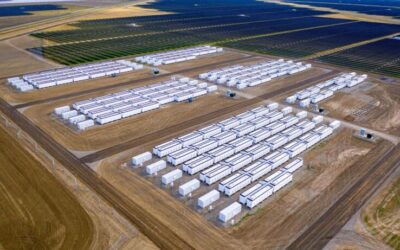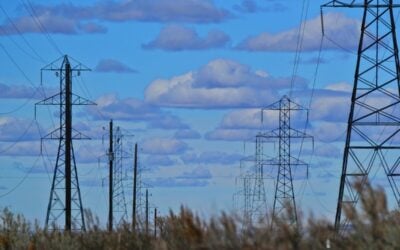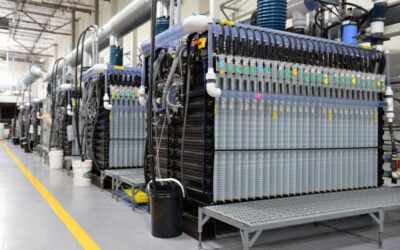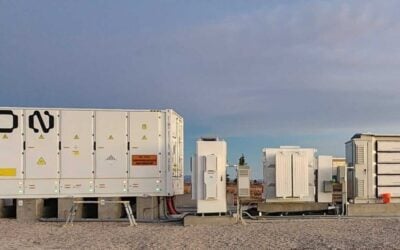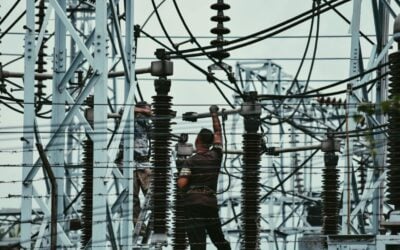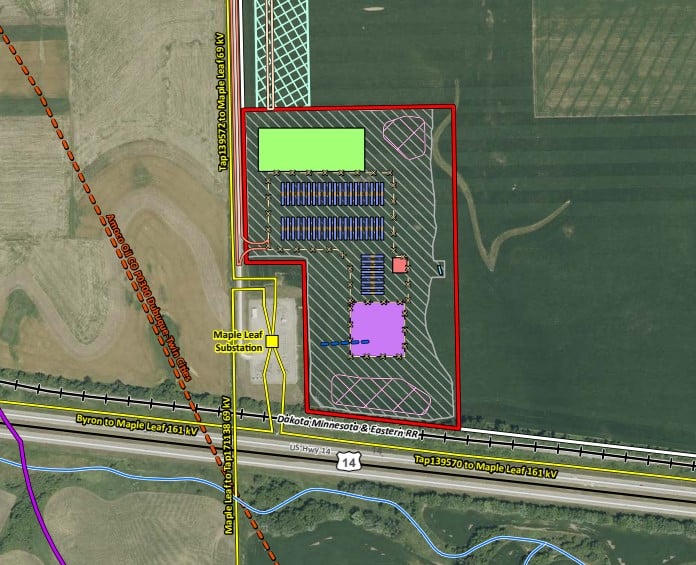
The Minnesota Public Utilities Commission (PUC) has approved a site permit for Spearmint Energy’s 150MW/600MWh battery energy storage system (BESS) in Kalmar Township.
Located in Olmsted County, the Snowshoe Energy Storage Project is the first standalone battery storage project permitted by the PUC, the US state’s independent regulatory agency.
According to project documents, the estimated total cost will be US$255 million and Spearmint, operating as Snowshoe BESS, LLC, estimates the project will generate approximately US$18,700 annually in property tax revenue.
In October 2024, Energy-Storage.news Premium reported that Spearmint lodged notice of its formal site permit application on 14 October, with the Minnesota PUC notifying interested stakeholders of its regulatory filing.
Try Premium for just $1
- Full premium access for the first month at only $1
- Converts to an annual rate after 30 days unless cancelled
- Cancel anytime during the trial period
Premium Benefits
- Expert industry analysis and interviews
- Digital access to PV Tech Power journal
- Exclusive event discounts
Or get the full Premium subscription right away
Or continue reading this article for free
The PUC added requirements to strengthen local safety and preparedness in response to stakeholder feedback.
The revised plan mandates that the permittee collaborate with local governments and emergency responders to prepare a detailed water main extension report, create a plan for obtaining specialized emergency equipment, and conduct relevant training for first responders, all at the permittee’s own cost.
The project will link to the Midcontinent Independent System Operator (MISO) grid through the Maple Leaf substation operated by the Southern Minnesota Municipal Power Agency (SMMPA).
Snowshoe will include space for additional battery capacity and is expected to be operational by late 2027.
According to the Solar Energy Industries Association (SEIA), Minnesota was one of the first states to mandate a benefit-cost analysis study for energy storage.
The 2019 report provided key insights for legislators and regulators on the best times to boost market growth. In 2024, the PUC codified regulations requiring electric utility companies to be transparent about their planning.
According to Minnesota Statute 216B.2422, utilities with over 10,000 retail customers must incorporate energy storage systems into their IRP filings. As of 2023, Minnesota has reported a storage capacity of 16MW.
Utility Xcel Energy secured approval from Minnesota state regulators in 2023 to construct a 1GWh project utilising Form Energy’s multi-day iron-air battery storage technology, situated near the town of Becker.
In 2024, the Minnesota Commerce Department and Xcel introduced incentives that promote energy equity and solar-plus-storage. These incentives are intended to enable Minnesota to accelerate energy storage deployment.
Commissioner John Tuma said of the Showshoe BESS, “This project represents a crucial evolution in our state’s energy infrastructure.”

